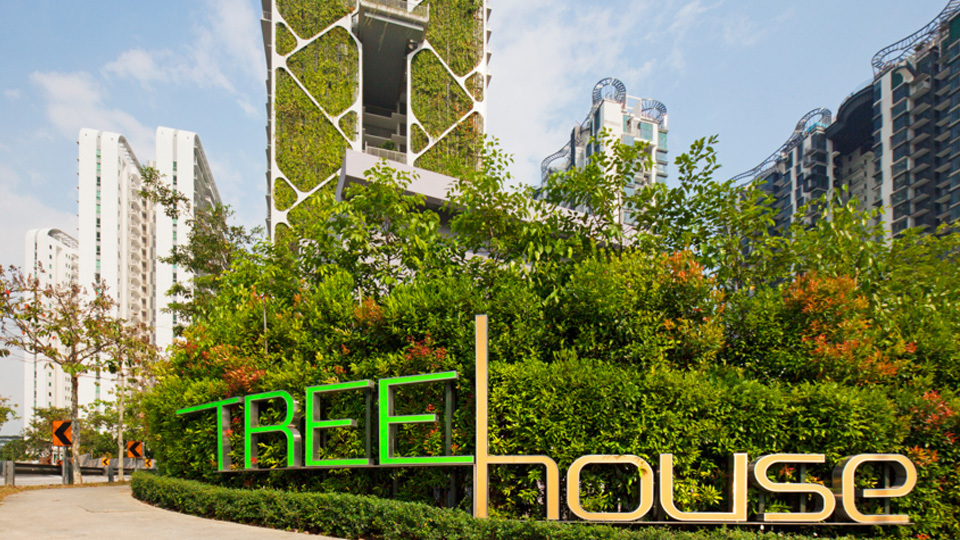Singapore, 21 January 2016 – City Developments Limited (CDL) has been ranked the Top Real Estate Company and Top 10 Corporations in the prestigious Global 100 Most Sustainable Corporations in the World in 2016. This makes CDL the first and only Singapore company to be listed on the ranking for seven consecutive years. Starting from 81st position in 2010, CDL’s ranking improved to 34th in 2015 and rose to 10th in 2016.
Recognised as the world’s preeminent sustainability equity index and gold standard in corporate sustainability analysis, the 2016 ranking was announced at the World Economic Forum in Davos, Switzerland, today.
Globally, there is heightened urgency to tackle climate change through greater adoption of sustainable actions. At the COP21 (Conference of Parties) summit held in December 2015, a global climate agreement was finalised to limit the rise in global temperatures to less than 2°C, while aiming for a more ambitious goal of 1.5°C. Singapore will work towards the pledge to reduce its emissions intensity by 36%, from 2005 levels, by 2030, and to stabilise emissions with the aim of peaking around 2030. There is also increase focus particularly on greening the built environment as globally, buildings account for 40% of energy consumption and 30% of carbon emissions.
In response to the growing global interest in sustainability information, the Singapore Exchange (SGX) will also be introducing sustainability reporting on a “comply or explain” basis. SGX expects the new rules and guide on sustainability reporting to apply to companies from the financial year ending on, or after 31 December 2017. The move is a step closer towards requiring Singapore-listed companies to report their Environmental, Social and Governance (ESG) performance.
Mr Grant Kelley, CDL Chief Executive Officer said, “Over the past two decades, CDL has continuously innovated, invested and improved on the way buildings sustain life. We are focused on sustainable development and have helped to green Singapore with more than 80 Green Mark buildings. Integrating sustainability into our corporate vision and strategy has created business value for CDL, our customers and our investors. Our efforts have created stronger brand equity and product differentiation. They have also given us a first-mover advantage as environmental regulations have been mandated progressively for the property sector.”
“We are honoured to be listed amongst the best global sustainability leaders and our improved ranking reflects our concerted efforts of integrating sustainability into operations,” added Mr Kelley.
Creating Business Value Through Sustainability
CDL has used sustainability reporting as an effective tool to measure, improve on and benchmark its ESG performance. It has been voluntarily publishing an annual, dedicated sustainability report since 2008. With the publication of each progressive report, CDL strives to improve on its material ESG performance, close in on gaps and enhance the quality of disclosures.
CDL is Singapore’s first property developer to adopt an Integrated Reporting (IR) approach for its 2015
Sustainability Report and has achieved:
- 21% reduction in carbon emissions in 2014 (from baseline year of 2007), up from 18% in 2013, and is on track to achieve its target of 25% reduction by 2030
- S$36.5 million worth of savings from annual electricity consumption from 57 Green Mark awarded buildings between 2008 and 2014
- Water usage was reduced by 29% from 717,033 m3 to 508,820 m3 in 2014
- Water conserved at CDL’s construction sites in 2014 more than doubled to 244,608 m3 from 121,715 m3 in 2013
- 9% increase in renewable energy generated by CDL-managed buildings from 199,732 kWh in 2013 to 217,567 kWh in 2014
As an eco-developer, CDL has spearheaded numerous groundbreaking innovations and new benchmarks in green properties. CDL developed the first CarbonNeutral® development in Asia Pacific and Singapore, 11 Tampines Concourse; Singapore’s first eco-mall, City Square Mall; and Tree House condominium, which achieved a Guinness World Record for the largest vertical garden in 2014.
In 2015, CDL introduced the innovative Prefabricated Prefinished Volumetric Construction (PPVC) methodology for The Brownstone Executive Condominium located at Canberra Drive, Sembawang. This application of PPVC is the first-of-its-kind in Asia, and likely the world’s largest for a large-scale residential development. Some 5,000 buildings modules will be prefabricated offsite, and subsequently assembled onsite. This is expected to increase productivity by more than 40%, which translates into some 55,000 man days saved. PPVC is also a sustainable building method that will reduce onsite construction work and hence mitigate the environmental impact.
Strong Start to 2016
In addition to Global 100, CDL has also been listed on The Sustainability Yearbook 2016 for its strong positioning in long-term shareholder value creation. Previously, CDL was also included in the 2013 edition of The Sustainability Yearbook.
Compiled by investment specialist RobecoSAM, The Sustainability Yearbook has listed the world’s most sustainable companies per sector based on their score in RobecoSAM’s annual Corporate Sustainability Assessment (CSA). The CSA is a unique collection of criteria addressing the most material sustainability issues within each of the 59 industries that RobecoSAM assesses. The wide range of topics go beyond the traditional environmental, social, and governance approach, aiming to find the intersection between what matters most to companies and investors.
Setting New Sustainability Benchmarks
CDL’s latest accolade in the Global 100 adds to its achievements across other top sustainability rankings. Since 2014, CDL has been Asia’s Top Property Developer, Top Singapore Company and Top 10 Companies in the Channel NewsAsia Sustainability Ranking. CDL also remains the first Singapore corporation to be listed on three of the world’s leading sustainability benchmarks – FTSE4Good Index Series (since 2002), Global 100 Most Sustainable Corporations in the World (since 2010) and Dow Jones Sustainability Indices (since 2011).
